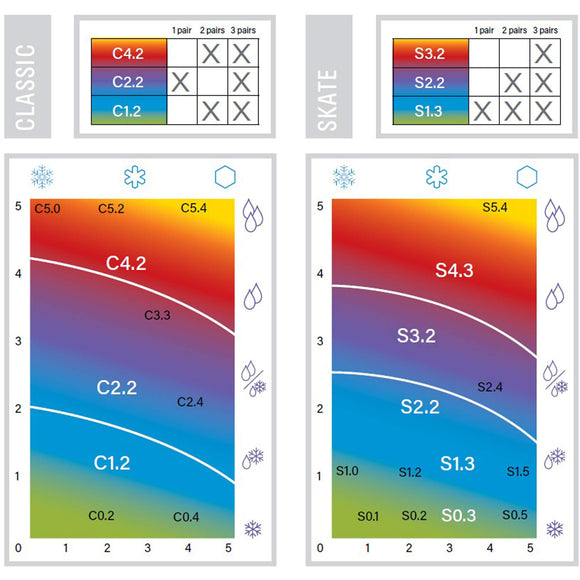Click here to visit our stone grinding page for detailed information and grind menus.
We also offer a round trip shipping option where we send you a box and include shipping both directions.
Stone grinding flattens the ski base, removes burnt and damaged base material, and creates a vital structure pattern. The bottom line is grinding makes your skis faster and easier to wax when done well. Factors you need to consider when grinding your skis are grind quality and how to choose structure patterns to optimize your skis’ performance.
GRIND QUALITY
The quality of a stone grind directly corresponds to performance. Producing high-quality grinds that yield the fastest skis requires advanced machinery and highly-skilled operators. Technicians must have a keen eye for grind quality as they manage many variables that influence the machine’s production. Experience, patience, and ability
are all required to make high-quality grinds consistently.
BNS uses cross-country-specific machines that leave bases clean and hair-free, reducing post-grind base prep and giving you fast skis almost immediately. Our digitally controlled equipment provides us with highly precise, repeatable grinds and avoids the burning, smearing, and overly aggressive structure we see in many skis that
come from other grinding operations.
CHOOSING THE RIGHT STRUCTURE
Snow crystal type and moisture content vary widely, and ski performance corresponds directly to how well a stone-grind pattern (structure) manages these factors. Some structures have comprehensive ranges
and handle various conditions well, while others are superb in a very limited set of conditions and suffer in most others. The grinds you choose should depend on how many pairs of skis you have in your
“fleet” and the conditions you expect to encounter most often.
Since ski quality is a dominant factor in performance, for most people, the best setup is one to three pairs of high-quality skis with broad-range grinds that put the best skis in the mix more often. However, many high-level competitors have four to six pairs, or more, to handle all snow conditions.
Product title
Vendor
$19.99 | $24.99
Product title
Vendor
$19.99 | $24.99
Product title
Vendor
$19.99 | $24.99
Product title
Vendor

